
New Delhi: The Indian National Congress today celebrates its 131st foundation day.
One of the largest and oldest political parties in the world, Congress was founded in 1885 during the British rule by Indian and British members of the Theosophical Society movement, including Scotsman Allan Octavian Hume. The objective of the party was to obtain a greater share in government for educated Indians.
The first meeting of Indian National Congress was planned to be held in Pune, but due to a plague outbreak, the meeting was shifted to Bombay. The first session was held from 28-31 December 1885 and was attended by 72 delegates.
With passing years, the demands of Congress became more fundamental and the party became active in the independence movement.
1907: Garam Dal and Naram Dal
In 1907, the party split into two factions, namely the Garam Dal of Bal Gangadhar Tilak and the Naram Dal of Gopal Krishna Gokhale. They were termed so because of their attitude towards the British rule.
The differences among these two factions paralyzed the Congress party due to which the agitation for independence ran out of steam and remained so till the end of the first world war (1914 - 1918).
The Naram Dal helped the British in its war efforts whereas the Garam Dal led by Tilak and Annie Beasant started the Home Rule League agitation in 1917. It was also under the influence of Bal Tilak that the Congress became the first integrated mass organisation in the country, bringing together millions of people against the British rule. This established its roots as a political establishment in the country.
1915: Gandhi era in Congress
Mahatma Gandhi came back from South Africa in 1915 and with the help of Naram Dal leaders, he became the president of the Congress without any election. After he formed an alliance with the Khilafat Movement, a number of leaders like Chittaranjan Das, Annie Besant, and Motilal Nehru resigned to set up the Swaraj Party.
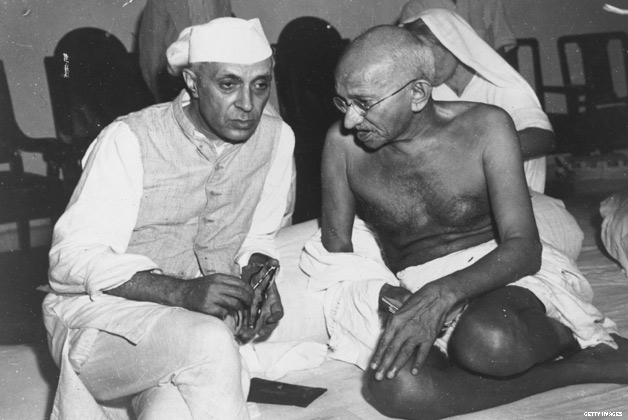
The Gandhi era in Congress politics began with the special session of the Congress at Calcutta in 1920. It was then that the Satyagraha movement and passive resistance became the main aspects of Congress strategy and thinking.
Leaders like Vallabhbhai Patel, Jawaharlal Nehru, Rajendra Prasad, Khan Abdul Ghaffar, and Maulana Abul Kalam Azad rose to prominence in the party and carried on the independence movement.
Mahatma Gandhi's popularity and polices aimed at eradicating caste differences, untouchability and poverty, also made the Congress a forceful and dominant group in the country.
1929: Poorna Swaraj
The Congress met at Lahore in December 1929 under the presidency of Jawaharlal Nehru. The party decided to launch a programme of civil disobedience, including non-payment of taxes.
At midnight on December 31, 1929, the Congress adopted Poorna Swaraj (complete independence), as its goal and unfurled the tri-colour flag of India's independence on the banks of the river Ravi.
Amidst slogans of 'Vande Mataram' and 'Inquilab Zindabad', Nehru declared that January 26, 1930, be celebrated as the day of independence.
In 1939, Subhas Chandra Bose, the elected president in both 1938 and 1939 was expelled from the Congress for his socialist views.
The Congress was reduced to a pro-Business group financed by the business houses of Birla and Bajaj.
At the time of the Quit India movement, the Congress was undoubtedly the strongest political and revolutionary organization in India, but the Congress separated itself from the Quit India movement within a few days.
The Indian National Congress could not claim to be the true representative of the Indian people as other parties were there as well particularly the Hindu Mahasabha, Azad Hind Sarkar and Forward Bloc.
1947: Nehru became India's first PM
The Congress remained in power for thirty continuous years post-independence. The party's first electoral defeat was in 1977. At the time of independence, the Indian National Congress led by Nehru was the major political party, and did prove crucial during the chaos following the partition of India.
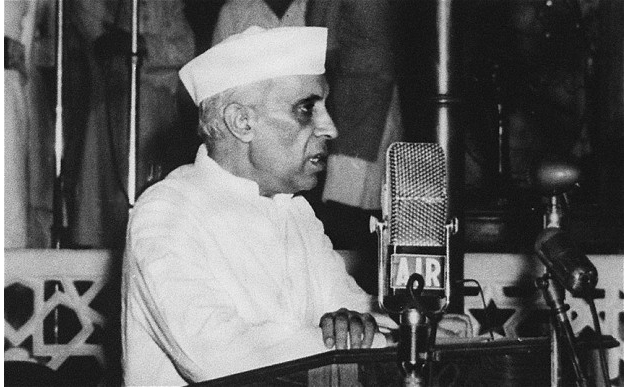
After the murder of Gandhi in 1948, and the death of Sardar Patel in 1950, Nehru was the only remaining iconic national leader, and soon the situation demanded Nehru to be the key to the political potency and future of the Congress. In the first general election held in 1952, the Congress swept to power. Nehru led the Congress to consecutively majorities in the elections of 1957 and 1962.
1964: Death of Nehru and rise of Indira Gandhi
After Nehru's death in 1964, the party's future initially came into question. The second line leader was the soft-spoken Lal Bahadur Shastri. He remained Prime Minister till his own death in 1966. After Shastri's death, the Congress elected Indira Gandhi as leader over Morarji Desai.
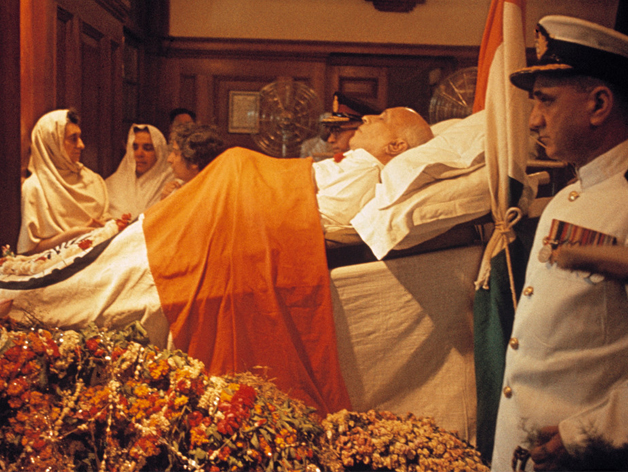
The first serious challenge to Congress was in 1967 when a united opposition challenged Indira. The conflict led to a division, and Indira launched a separate Indian National Congress. Initially this party was known as Congress (R).
In the mid-term parliamentary elections held in 1971, Indira registered a landslide victory on a platform of progressive policies such as the elimination of poverty 'garibi hatao'.
1975: The Emergency era
On 12 June 1975, the Allahabad High Court declared Indira's election to the Lok Sabha void on the grounds of electoral malpractice. She, however, refused to step down and announced plans to appeal to the Supreme Court. She moved to restore order by ordering the arrest of most of the opposition leaders taking part in the unrest.
In response to increasing disorder and lawlessness, she recommended that President Fakhruddin Ali Ahmed declare a State of Emergency, which he declared on 25 June 1975.

After she lifted the emergency, the Congress was routed in the general elections by the Janata Party, but the federation government fell apart in two years. The Congress party returned to power in 1980 elections. She was again elected Prime Minister.
1984: Indira Gandhi assassination and rise of Rajiv Gandhi
In 1984 Indira Gandhi was assassinated by two of her Sikh bodyguards, in revenge for Operation Blue Star.
After this, her son Rajiv Gandhi took over as Congress leader and led the party to victory with a large majority in the 1984 general elections.
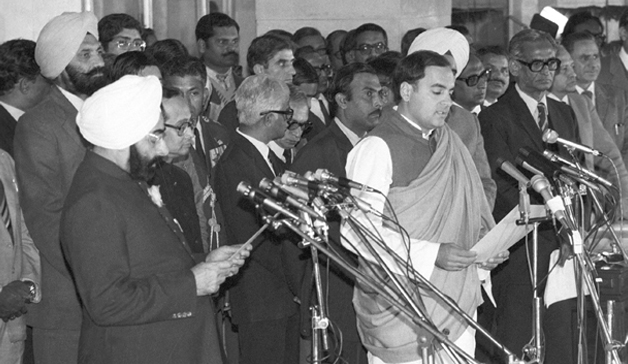
In 1989, the Congress party was routed by the Janata Dal.
During the course of the election campaign in 1991, Rajiv was also assassinated near Chennai by the LTTE.
Following Rajiv's assassination, senior Congress leader PV Narasimha Rao was made the leader of Congress party and later became prime minister.
1998: The rise of Sonia Gandhi and 2004, 2009 and 2014 general elections
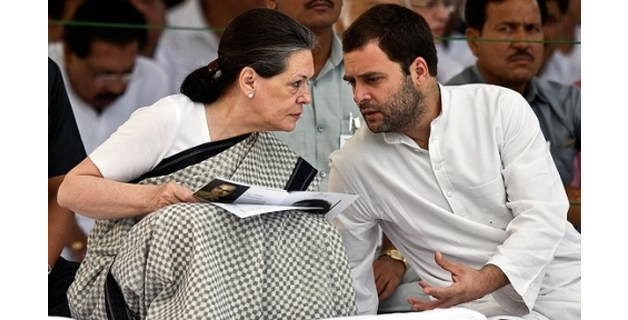
In 1998 general election, the Congress won 141 seats in the Lok Sabha, its lowest tally until then. The party urged Rajiv's widow, Sonia Gandhi, to assume the leadership. She had previously declined offers but this time she accepted it.
After the fall of NDA government, in 1999 general election, the Congress won 114 seats - its lowest tally ever.
The leadership remained unchanged. And in the 2004 general election, the Congress forged an alliance with several regional parties, winning 222 seats in the new Parliament, defeating the BJP-led NDA.

In 2009, the Congress-led UPA won 262, enabling to form the government for the second time.
By the 2014 Lok Sabha elections, the party had lost much of its popular support, mainly because of a series of corruption allegations. The Congress won only 44 seats, which was its worst-ever performance in a general election.
























